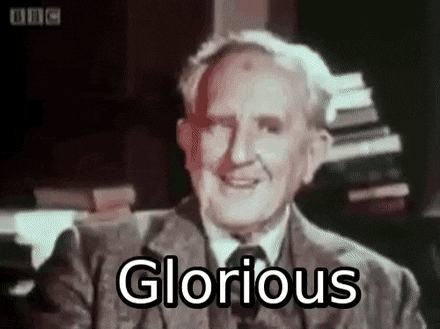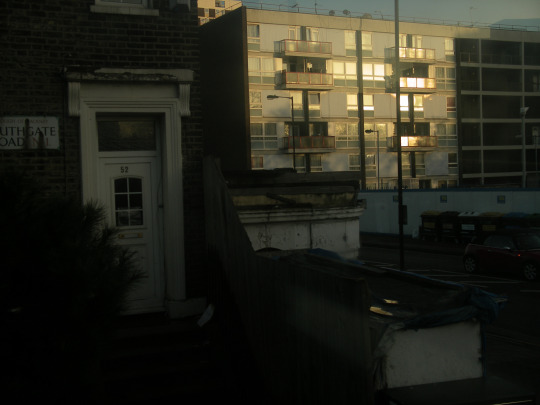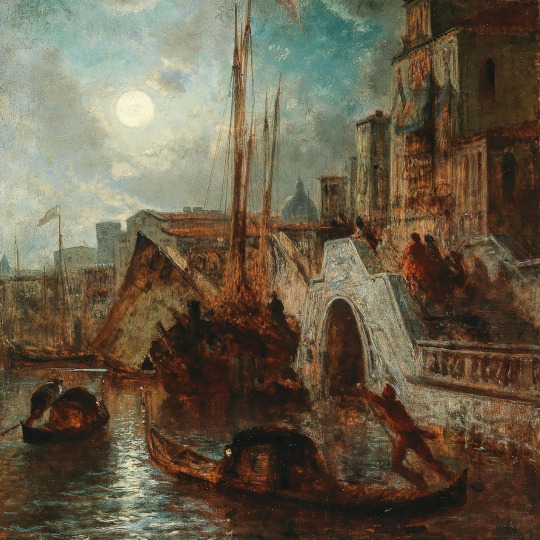#de beauvoir
Explore tagged Tumblr posts
Text

“Self-knowledge is no guarantee of happiness, but it is on the side of happiness and can supply the courage to fight for it.”
— Simone de Beauvoir
#simone de beauvoir#de beauvoir#literature#lit#literature lover#literature quote#literature quotes#french literature#philosophy#philosophical#philosopher#philosophers#philosophy of life#philosophy quote#philosophy quotes#quote#quotes#excerpts#excerpt#quoteoftheday#booklover#book#bookworm#books#booklr#book quotes#book quotations
67 notes
·
View notes
Text
One's life has value so long as one attributes value to the life of others, by means of love, friendship, and compassion.
Simone de Beauvior
#simone de beauvoir#de beauvoir#quotes#philosophy#wisdom#life#literature#art#artist#idea#ideas#meaning#value#the soul#soul#love#friendship#compasiion#existentialist#existentialism
22 notes
·
View notes
Text


There was a quotation from Simone de Beauvoir that I read in the paper only the other day… You may agree with those words or not, but those are the key spring of The Lord of the Rings.
J. R. R. Tolkien, 1968
Tolkien is talking about Original Sin in which death ("the wages of sin is death" as Paul would put it in the gospels) was never part of the original design of God before the Fall. De Beauvoir unwittingly makes the point for Tolkien. Had she known she might have choked on her coffee in Café de Flore.
#tolkien#jrr tolkien#quote#simone de beauvoir#de beauvoir#inspiration#death#books#lord of the rings#literature#original sin#catholicism#christology#theology#french existentialist
52 notes
·
View notes
Text

#London#Southgate Road#N1#Islington#De Beauvoir#5 February 2010#photography#original photography#original photograph
10 notes
·
View notes
Text
well... until 1991 (91!!!) in the Canadian agricultural sensus identified women linving on a farm with no outside income as "farm wife". I shit you not.
It was officially for "continuity of the data" reasons - which is super important in long term stats like that - but it took them until 1991 to decide that "farmer" was a good enough descriptive and that gender could be matched to previous data without being all misoginic about it.

#The road to equality has been very long and we are not there yet#feminism#"N'oubliez jamais qu'il suffira d'une crise politique#Ces droits ne sont jamais acquis. Vous devrez rester vigilantes votre vie durant#de Beauvoir
75K notes
·
View notes
Text
Vedi alla voce pendolare
di I calzini spaiati Vedi alla voce pendolare Björn Larsson ha alle spalle un’esistenza nomade e vagabonda a bordo di una barca, ma anche quarant’anni di sfiancante pendolarismo. Pendolare incallito tra Danimarca, Svezia e Italia per lavoro e per amore, durante i suoi numerosi viaggi – in traghetto, treno, bus e qualche aereo – e migliaia di chilometri, ha osservato le abitudini e le nevrosi…
#italia#leggere#libri#Beckett#Bjorn Larsson#Danimarca#De Beauvoir#libro#Orwell#pendolare#romanzo#Svezia#treno#Veronica Giuffré#Viaggi#viaggio
0 notes
Text

Simone de Beauvoir, from "Inseraparable: A Never Before Published Novel,"
#lit#simone de beauvoir#prose#quote#words#writings#selection#typography#fragments#dark academia#love language#p
16K notes
·
View notes
Text
AMBIGUITY
“Fantasy abandoned by reason produces monsters” —Francisco Goya This Is not an editorial cartoon. OK, it’s in a cartoon format/style and the content is “editorial,” i.e. of current [political, cultural, and/or economic] events. But it lacks both the here-today-gone-tomorrow and the serio-comic “gag” (pun intended) qualities the genre requires. Also, were it an editorial cartoon I’d be required…

View On WordPress
#ambiguity#america#de beauvoir#disasters of war#editorial cartoons#Francisco Goya#godzilla#hate#los caprichos#maga cap#monsters#sleep of reason produces monsters#working class
0 notes
Text

Simone de Beauvoir, from Diary of a Philosophy Student: Volume 1, 1926-27
Text ID: I observe how much I have matured since last year despite my belief that I was losing myself, how something strong was born from the painful experiences survived and from the numerous minutes that I believed were wasted.
#simone de beauvoir#diary of a philosophy student: volume 1 1926-27#diary of a philosophy student: volume 1#diary of a philosophy student#quote#diary#journal#nonfiction#nonfiction literature#french literature#lit#miscellanea#🤍🤍🤍#i need to clear out of my drafts over the last year—i’ll probably be mass-posting over the course of weeks. :(
6K notes
·
View notes
Text

// Art: “Venice, A Canal in the Moonlight, with Santa Maria della Salute in the Background” by Andreas Achenbach
“One's life has value so long as one attributes value to the life of others, by means of love, friendship, indignation and compassion.”
— Simone de Beauvoir
#simone de beauvoir#de beauvoir#literature#lit#literature quote#literature quotes#literature lover#french literature#philosophy#philosophical#philosopher#philosophers#philosophy quotes#philosophy of life#quote#quotes#excerpts#excerpt#booklover#book#bookworm#books#book quotes#book quotations#art#artwork#classical art#classical painting
41 notes
·
View notes
Text
If you live long enough, you'll see that every victory turns into a defeat.
Simone de Beauvoir
#Simone de Beauvoir#de beauvoir#quotes#philosophy#wisdom#life#literature#writer#books#psychology#write#art#artist#idea#ideas#existentialist#existentialism
54 notes
·
View notes
Text

“As for “despair,” the meaning of this expression is extremely simple. It merely means that we limit ourselves to a reliance upon that which is within our wills, or within the sum of the probabilities which render our action feasible. Whenever one wills anything, there are always these elements of probability. If I am counting upon a visit from a friend, who may be coming by train or by tram, I presuppose that the train will arrive at the appointed time, or that the tram will not be derailed. I remain in the realm of possibilities; but one does not rely upon any possibilities beyond those that are strictly concerned in one’s action. Beyond the point at which the possibilities under consideration cease to affect my action, I ought to disinterest myself. For there is no God and no prevenient design, which can adapt the world and all its possibilities to my will. When Descartes said, “Conquer yourself rather than the world,” what he meant was, at bottom, the same – that we should act without hope.
Marxists, to whom I have said this, have answered: “Your action is limited, obviously, by your death; but you can rely upon the help of others. That is, you can count both upon what the others are doing to help you elsewhere, as in China and in Russia, and upon what they will do later, after your death, to take up your action and carry it forward to its final accomplishment which will be the revolution. Moreover you must rely upon this; not to do so is immoral.” To this I rejoin, first, that I shall always count upon my comrades-in-arms in the struggle, in so far as they are committed, as I am, to a definite, common cause; and in the unity of a party or a group which I can more or less control – that is, in which I am enrolled as a militant and whose movements at every moment are known to me. In that respect, to rely upon the unity and the will of the party is exactly like my reckoning that the train will run to time or that the tram will not be derailed. But I cannot count upon men whom I do not know, I cannot base my confidence upon human goodness or upon man’s interest in the good of society, seeing that man is free and that there is no human nature which I can take as foundational. I do not know where the Russian revolution will lead. I can admire it and take it as an example in so far as it is evident, today, that the proletariat plays a part in Russia which it has attained in no other nation. But I cannot affirm that this will necessarily lead to the triumph of the proletariat: I must confine myself to what I can see. Nor can I be sure that comrades-in-arms will take up my work after my death and carry it to the maximum perfection, seeing that those men are free agents and will freely decide, tomorrow, what man is then to be. Tomorrow, after my death, some men may decide to establish Fascism, and the others may be so cowardly or so slack as to let them do so. If so, Fascism will then be the truth of man, and so much the worse for us. In reality, things will be such as men have decided they shall be. Does that mean that I should abandon myself to quietism? No. First I ought to commit myself and then act my commitment, according to the time-honoured formula that “one need not hope in order to undertake one’s work.” Nor does this mean that I should not belong to a party, but only that I should be without illusion and that I should do what I can. For instance, if I ask myself “Will the social ideal as such, ever become a reality?” I cannot tell, I only know that whatever may be in my power to make it so, I shall do; beyond that, I can count upon nothing.” - Jean-Paul Sartre, ‘Existentialism Is a Humanism’ (1946)
1 note
·
View note
Text
The little girl’s sense of secrecy that developed at prepuberty only grows in importance. She closes herself up in fierce solitude: she refuses to reveal to those around her the hidden self that she considers to be her real self and that is in fact an imaginary character: she plays at being a dancer like Tolstoy’s Natasha, or a saint like Marie Leneru, or simply the singular wonder that is herself. There is still an enormous difference between this heroine and the objective face that her parents and friends recognize in her. She is also convinced that she is misunderstood: her relationship with herself becomes even more passionate: she becomes intoxicated with her isolation, feels different, superior, exceptional: she promises that the future will take revenge on the mediocrity of her present life. From this narrow and petty existence she escapes by dreams.
Simone de Beauvoir, The Second Sex
6K notes
·
View notes
Text

Simone de Beauvoir, Diary of a Philosophy Student: Vol. I, 1926-27
1K notes
·
View notes

